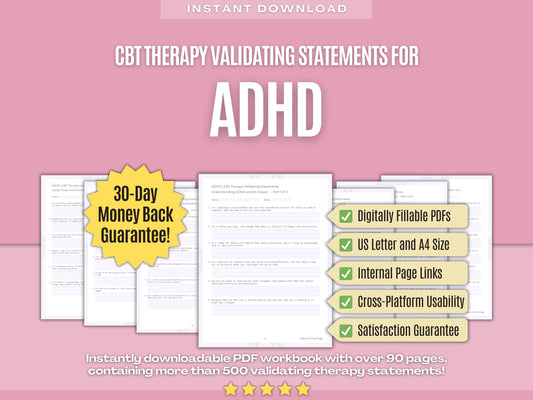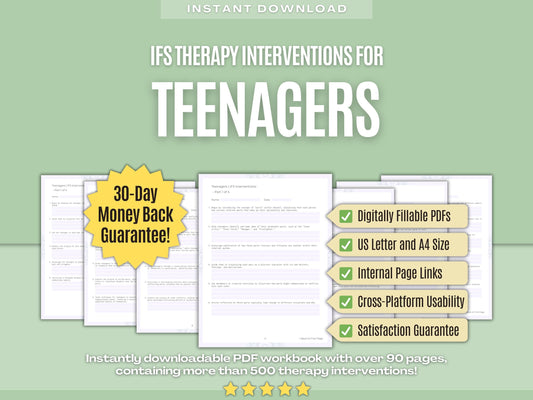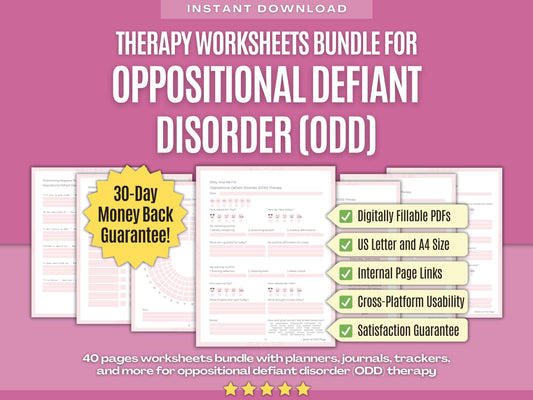Elevate Your Therapy and Guide Your Clients to Inner Healing with Our Self-Compassion Therapy Session Questions! ✨
1. Starting Your Self-Compassion Journey
- What motivated you to start your journey toward cultivating self-compassion?
- How do you envision your life changing as you begin to prioritize self-compassion?
- What do you hope to gain from integrating self-compassion into your daily life?
- How do you typically respond to moments of self-doubt or self-criticism?
- Reflect on a time when you offered yourself compassion during a difficult moment. What did that experience teach you?
- How do you think practicing self-compassion might influence your relationships with others?
- What strategies or techniques have you used in the past to cope with difficult emotions or experiences?
- How do you currently prioritize your own needs and well-being in your day-to-day life?
- What role does self-compassion play in your overall mental health and emotional resilience?
- How might your perception of yourself change as you cultivate a greater sense of self-compassion?
- Reflect on a time when you struggled to forgive yourself for a mistake or perceived failure. What insights did you gain from that experience?
2. Learning About Self-Compassion
- What is your current understanding of the concept of self-compassion, and how do you define it?
- How do you think your upbringing or cultural background has influenced your relationship with self-compassion?
- What emotions arise for you when you consider the idea of showing yourself kindness and understanding?
- How do you typically respond to difficult emotions such as shame, guilt, or sadness?
- Reflect on a time when you offered compassion to a friend or loved one. How did it feel, and what motivated you to extend that compassion?
- Are there any cultural or societal influences that shape your beliefs about self-compassion?
- Can you recall a time when you felt a deep sense of self-acceptance or self-love? What factors contributed to that experience?
- Are there any myths or misconceptions about self-compassion that you would like to explore or clarify?
- How do you typically respond to setbacks or challenges in your life?
- What strategies or techniques have you used in the past to cultivate self-compassion?
- Reflect on a time when you struggled to forgive yourself for a mistake or failure. What insights did you gain from that experience?
3. Mindfulness for Self-Kindness
- What does mindfulness mean to you, and how do you currently incorporate it into your life?
- How do you typically respond to moments of stress or overwhelm in your daily life?
- Are there any barriers or challenges that you encounter when attempting to practice mindfulness?
- Have you ever experimented with mindfulness techniques such as meditation, deep breathing, or body scans? If so, what was your experience like?
- Reflect on a recent situation where you reacted impulsively or emotionally. How might mindfulness have influenced your response?
- Are there any misconceptions or myths about mindfulness that you've encountered?
- Reflect on a time when you felt a deep sense of connection to yourself and others. What factors contributed to that experience?
- Are there any cultural or societal influences that shape your views on mindfulness and self-kindness?
- How do you currently prioritize self-care and stress management in your life?
- What role do you think mindfulness plays in fostering resilience and emotional well-being?
- How might your relationships with others benefit from your practice of mindfulness and self-kindness?
4. Dialectical Behavior Therapy (DBT) for Emotional Acceptance
- What does emotional acceptance mean to you, and how do you currently approach difficult emotions in your life?
- How do you typically respond when faced with overwhelming emotions such as anger, sadness, or anxiety?
- Are there any patterns or triggers that tend to activate your emotional distress?
- Can you identify any beliefs or judgments you hold about certain emotions or emotional experiences?
- What strategies or techniques have you used in the past to cope with intense emotions?
- Are there any cultural or societal influences that shape your attitudes toward emotional acceptance?
- How do you think your relationships with others might be influenced by your ability to accept and tolerate your own emotions?
- Reflect on a recent situation where you experienced a strong emotional reaction. How might applying dialectical behavior therapy (DBT) principles have helped you navigate that experience differently?
- Can you recall any past experiences or influences that have shaped your approach to emotional acceptance?
- How might your life look different if you approached your emotions with curiosity and acceptance rather than judgment or avoidance?
- Reflect on a time when you resisted acknowledging a particular emotion because it felt too overwhelming or painful. What fears or concerns were driving that resistance?
5. Interpersonal Therapy (IPT) for Compassionate Relationships
- Can you describe a recent interaction with someone close to you that left you feeling upset or disconnected?
- How do you typically approach conflicts or disagreements within your relationships?
- Can you identify any underlying needs or desires that may be driving your behavior in relationships?
- Are there any past experiences or relationships that continue to impact the way you relate to others today?
- What are some of the core values or principles that you prioritize in your relationships?
- Can you think of any ways in which your current relationships may be contributing to your overall well-being or distress?
- How do you nurture and maintain connections with others in your life?
- How do you typically respond to criticism or feedback from others?
- What role does self-compassion play in your ability to cultivate compassionate relationships with others?
- How do you think your communication style or behavior may impact the dynamics of your relationships?
- Can you think of any ways in which you could practice self-compassion within your relationships?
6. Emotion-Focused Therapy (EFT) for Healing Self-Relations
- Can you describe how you currently relate to your emotions and the role they play in your life?
- How do you typically respond when these difficult emotions arise?
- Are there any past experiences or relationships that may have influenced your relationship with your emotions?
- Can you recall a recent situation where you felt overwhelmed by your emotions, and how did you navigate through that experience?
- How do you usually respond to yourself when you're experiencing intense emotions?
- Can you identify any ways in which you avoid or suppress certain emotions, and what impact does that have on you?
- Are there any specific emotions that you feel disconnected from or struggle to access?
- What are some self-soothing techniques or strategies that you find helpful when you're feeling overwhelmed by your emotions?
- Can you envision what it might look like to have a more compassionate relationship with your emotions?
- How do you think your relationships with others impact the way you relate to your own emotions?
- What are some ways in which you can practice mindfulness or awareness of your emotions in your daily life?
7. Psychodynamic Exploration of Self-Compassion
- Can you describe your current relationship with yourself, including how you perceive your self-worth and value?
- How do you typically respond to moments of self-doubt or self-criticism?
- What are some of the beliefs or messages you received about self-compassion from caregivers or influential figures in your childhood?
- How do you think your early experiences of attachment and bonding with caregivers have shaped your ability to be self-compassionate?
- What emotions typically arise for you when you think about extending compassion to yourself?
- Are there any fears or anxieties that arise when you consider being more compassionate towards yourself?
- How do you think your cultural or societal background influences your understanding and practice of self-compassion?
- What role do you think shame plays in your ability to be self-compassionate?
- How do you typically talk to yourself when you make mistakes or face challenges?
- What are some of the values or principles that guide your understanding of self-compassion?
- How do you think your self-compassion practice influences your relationships with others?
8. Music Therapy for Soothing the Self
- How do you currently use music in your life to soothe yourself during difficult times?
- What emotions or memories does that particular song evoke for you?
- Do you find that certain genres of music are more effective in helping you relax and calm down?
- Are there any instruments or sounds that you find particularly soothing or comforting?
- Do you have any concerns or reservations about using music as a form of self-compassion therapy?
- Have you ever explored creating your own music or participating in musical activities as a form of self-expression?
- Can you identify any patterns or triggers that prompt you to turn to music for comfort?
- How would you describe your current relationship with music, both in terms of enjoyment and its therapeutic benefits?
- What role does rhythm play in your experience of relaxation or stress relief when listening to music?
- Can you envision ways in which you might incorporate music into your daily routine to promote self-compassion?
- Are there any memories or experiences from your past that you associate with music in a positive or negative light?
9. Reflecting on Self-Compassion Development
- How would you describe your understanding of self-compassion and its importance in your life at this moment?
- What emotions arise for you when you consider the concept of self-compassion and its role in your well-being?
- Are there any barriers or challenges that you've encountered in developing a practice of self-compassion?
- Can you identify any patterns or habits that have hindered your ability to practice self-compassion consistently?
- Have you noticed any shifts in your relationships with others as you've worked on developing self-compassion?
- Are there any cultural or societal influences that have shaped your beliefs about self-compassion?
- How do you think your self-compassion journey has evolved over time, if at all?
- What role does mindfulness play in your practice of self-compassion?
- Have you ever explored self-compassion through creative or expressive means, such as journaling or art?
- Are there any specific goals or intentions you have for furthering your self-compassion journey?
- Can you reflect on any moments of growth or insight you've experienced as a result of practicing self-compassion?
10. Closing the Chapter on Self-Compassion
- As we approach the end of our sessions focused on self-compassion, how would you describe your overall journey and progress in cultivating self-compassion?
- How do you feel about the idea of closing this chapter on self-compassion and transitioning into the next phase of your therapeutic journey?
- Can you identify any specific self-compassion practices or techniques that you plan to continue incorporating into your daily life moving forward?
- Are there any challenges or obstacles you anticipate encountering as you continue to prioritize self-compassion in your life?
- Can you reflect on any changes you've noticed in your relationship with yourself as a result of focusing on self-compassion?
- Are there any self-compassion resources or support systems you plan to utilize as you continue your journey?
- How do you plan to navigate moments of self-criticism or self-doubt in the future using the tools and strategies you've learned?
- Are there any self-compassion exercises or practices that you found particularly challenging or transformative?
- Can you reflect on any areas of resistance or reluctance you encountered during our work on self-compassion?
- Are there any rituals or rituals you would like to incorporate into your life to honor and nurture your self-compassion practice?
- How do you plan to hold space for yourself and honor your needs with compassion and kindness in the future?
We hope that our therapy session questions for Self-Compassion therapy will help you to elevate your therapy practice and guide your clients to inner healing! Do you need more therapy session questions for Self-Compassion therapy? Find them all in our Digital Workbook! Or do you have any questions or suggestions for us? Please feel free to contact us at any time!


















